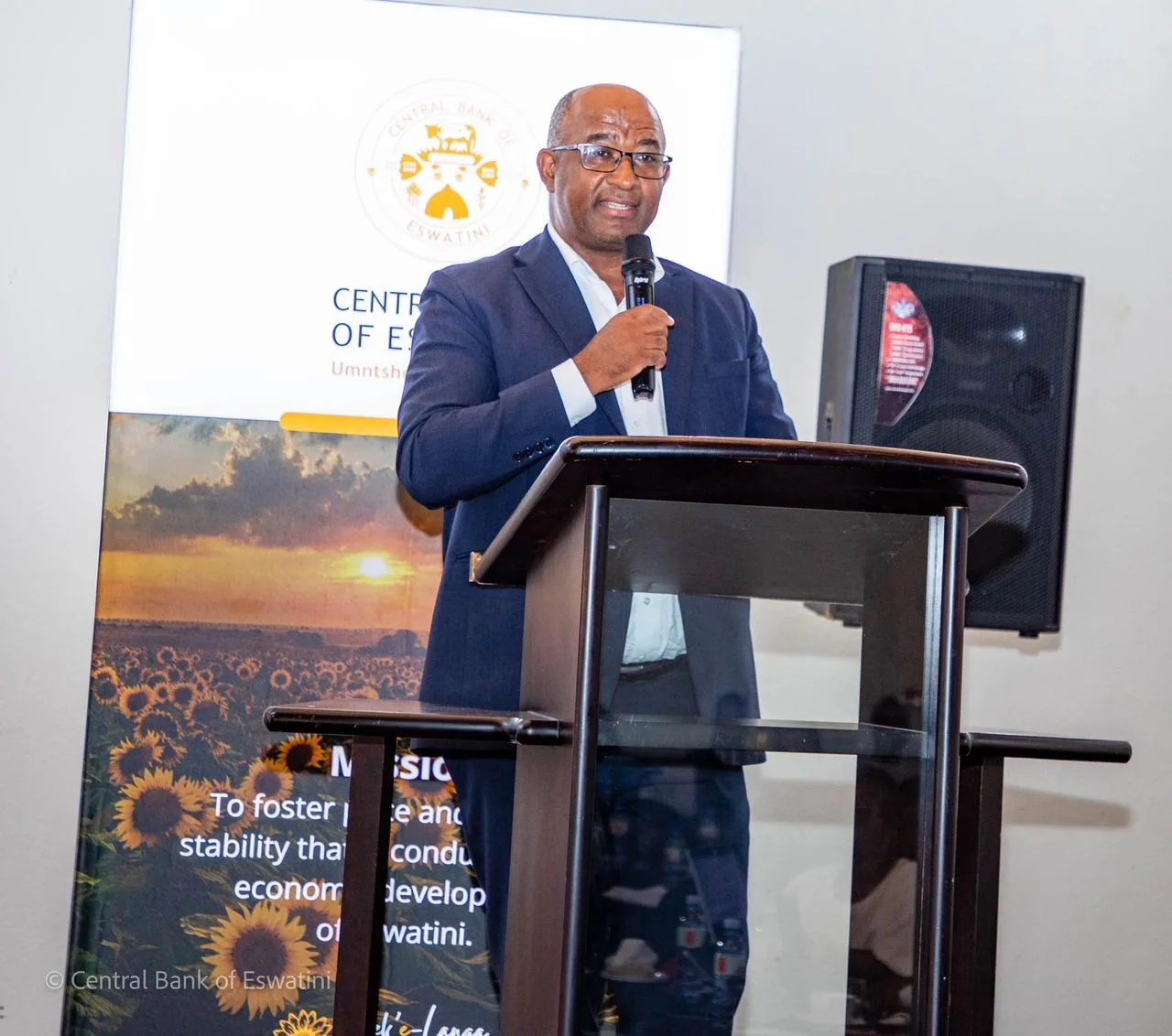By Silindzelwe Nxumalo
The Governor of the Central Bank of Eswatini (CBE) Dr Phil Mnisi has called for collaboration among all stakeholders in the relentless fight against Money Laundering and Terrorism Financing.
Mnisi made this call during his opening remarks at a five-day Terrorist Financing and Targeted Financial Sanctions training at Sibane Sami Hotel hosted by CBE, facilitated by consultants from the Eastern Southern Africa Anti-Money Laundering Group (ESAAMLG).
The Governor, who also serves as the Chairperson of the Council of the National Task Force, emphasized the urgent need for collaboration among all stakeholders in the relentless fight against Money Laundering and Terrorism Financing.
He stated that they have a role and obligation to play in their respective sectors to have a robust, healthy, and effective AML/CFT regime.
“We are confident that after this training we are all going back to our different institutions with knowledge and skills,” he said.
The Governor highlighted that they were all aware that, between 2020-2022, the country was assessed for anti-money laundering, counter-financing of terrorism, and counter-proliferation financing (AML/CFT/CFT) to determine the effectiveness of the country’s regime.
He stated that the mutual evaluation report that was adopted in 2022, identified gaps in the AML/CFT/P regime, and mutual evaluations shine a bright light on countries that do not adequately mitigate money laundering, terrorist financing, and proliferation financing risks.
“And importantly, post the mutual evaluation, countries are required to address the gaps and report back to the ESAAMLG on the progress in implementing robust measures to strengthen the regimes,” he said.
ALSO READ: Central Bank restricts usage of ‘speed points’ to curb money laundering
He added that those with the greatest deficiencies and who fail to address the gaps within a specified period are named publicly on the FATF website, and listing under the FATF harms the international reputation of that country.
The governor said it also increases the cost of doing business, and in the worst case, it could lead to the country being cut off from the global financial system.
“Eswatini has put in place the required legal and institutional frameworks to fight against money laundering, terrorist financing, and proliferation financing risk. However, the assessment indicated that the country’s framework still falls short of the required standards,” he said.

He explained that the country’s AML/CFT national task force is working tirelessly to implement all the recommendations made by the ESAAMLG assessment team.
He stated that these include amending legislation, reviewing the regulatory frameworks, assessing, and understanding ML/TF/PF risks, strengthening AML/CFT supervision, enhancing the use of financial intelligence to conduct parallel financial investigations, ensuring convictions, and capacity building.
ALSO READ: Mozambique submits report to exit grey list
“We are pleased to report that the Task Force has improved collaboration and achieved amongst other things the successful hosting of the AML/CFT Indaba where we engaged with the public to promote the understanding of the ML/TF risks and topical issues in the country,” said the governor.
Furthermore, Mnisi said the fight against money laundering, terrorist financing, and proliferation financing requires a collaborative approach.
“This week we will have training on terrorist financing, proliferation financing, and targeted financial sanctions. These areas are identified by the mutual evaluation as wanting. It is on that note that we have staged this training for all the AML/CFT stakeholders as gathered here,” he said.
He highlighted that this emphasizes the fact that AML or CFT initiatives depend on successful implementation by all stakeholders as failure by one, leads to subsequent failure by all.
“This reminds me of one of the domino effect principles whereby one falling domino triggers a fall of all the other dominoes. We are as strong as our weakest link. I am happy, therefore, that today we have all the country stakeholder institutions at this training session,” he shared.
The governor also stated that the different stakeholders have a role or obligation to play in their respective sectors to have a robust, healthy, and effective AML/CFT regime.
“We are confident that after this training we are all going back to our different institutions with knowledge and skills. The expectation is that we will all implement what we will learn here to ensure compliance with FATF standards. We are grateful to the Executive Secretary of the ESAAMLG for the positive response to our technical assistance request on this subject matter,” he said.
The training was aimed at equipping participants and key industry stakeholders; AML/CFT regulators, Financial Intelligence Unit (FIU), Financial Service Providers (FSPs), Attorney General (AG), Ministry of Finance, and other ministries with essential knowledge and strategies on combating threats to the nation’s security.


